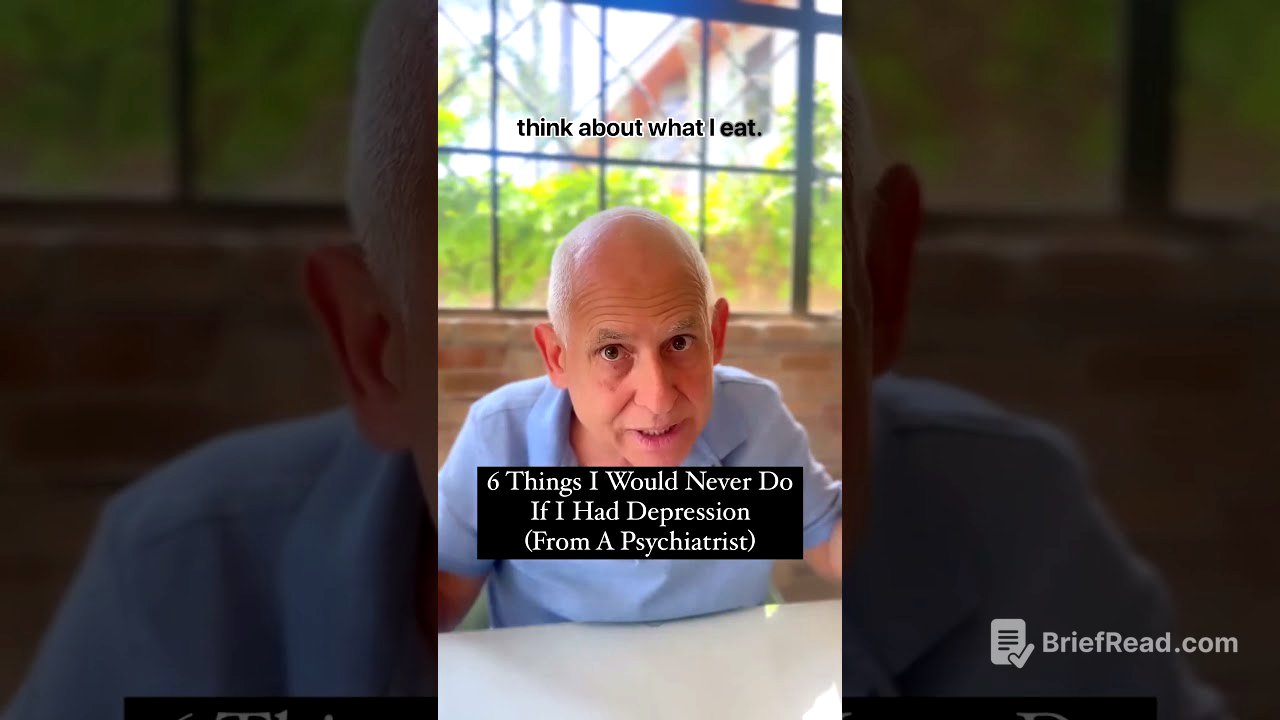TLDR;
This video outlines six key practices a psychiatrist would avoid to maintain mental well-being and effectively manage depression. These include avoiding medication without proper assessment, abstaining from self-medication, maintaining a healthy diet, challenging negative thoughts, preventing social isolation, and avoiding returning to bed after waking up. These guidelines aim to promote a proactive and healthy approach to mental health.
- Thorough assessment before medication
- Avoid self-medication
- Healthy diet
- Challenge negative thoughts
- Prevent social isolation
- Avoid returning to bed after waking up
Introduction [0:00]
A psychiatrist shares six things they would never do to manage depression and maintain mental health. These practices are crucial for both personal well-being and professional effectiveness.
Skipping Thorough Assessments and Lab Work [0:06]
The first thing a psychiatrist would never do is prescribe medication for depression without conducting a thorough assessment, including lab work. This ensures that the treatment is tailored to the individual's specific needs and underlying health conditions, rather than relying on a one-size-fits-all approach.
Self-Medicating with Harmful Substances [0:13]
Self-medicating with alcohol, drugs, or even substances like magic mushrooms is something a psychiatrist would strongly avoid. These substances can exacerbate depression and lead to further mental health issues, creating a cycle of dependency and worsening symptoms.
Ignoring Diet and Eating Fast Food [0:20]
A psychiatrist would never disregard the importance of diet and consistently eat at fast food places without considering the nutritional impact. Proper nutrition is essential for mental health, and a poor diet can negatively affect mood and energy levels, worsening depressive symptoms.
Believing Every Negative Thought [0:26]
Believing every negative thought that comes to mind is a practice a psychiatrist would avoid. Challenging and reframing negative thoughts is crucial in managing depression, as these thoughts can significantly impact one's mood and overall mental state.
Isolating Oneself [0:32]
A psychiatrist would never isolate themselves, especially when feeling depressed. Social isolation can worsen depression, making it harder to cope with symptoms. Maintaining social connections and support systems is vital for mental well-being.
Returning to Bed After Waking Up [0:39]
Going back to bed in the morning after initially waking up is something a psychiatrist would avoid. Staying in bed can intensify feelings of depression, making the weight of depression feel heavier throughout the day. Getting up and engaging in activities is a more proactive approach to managing depression.









